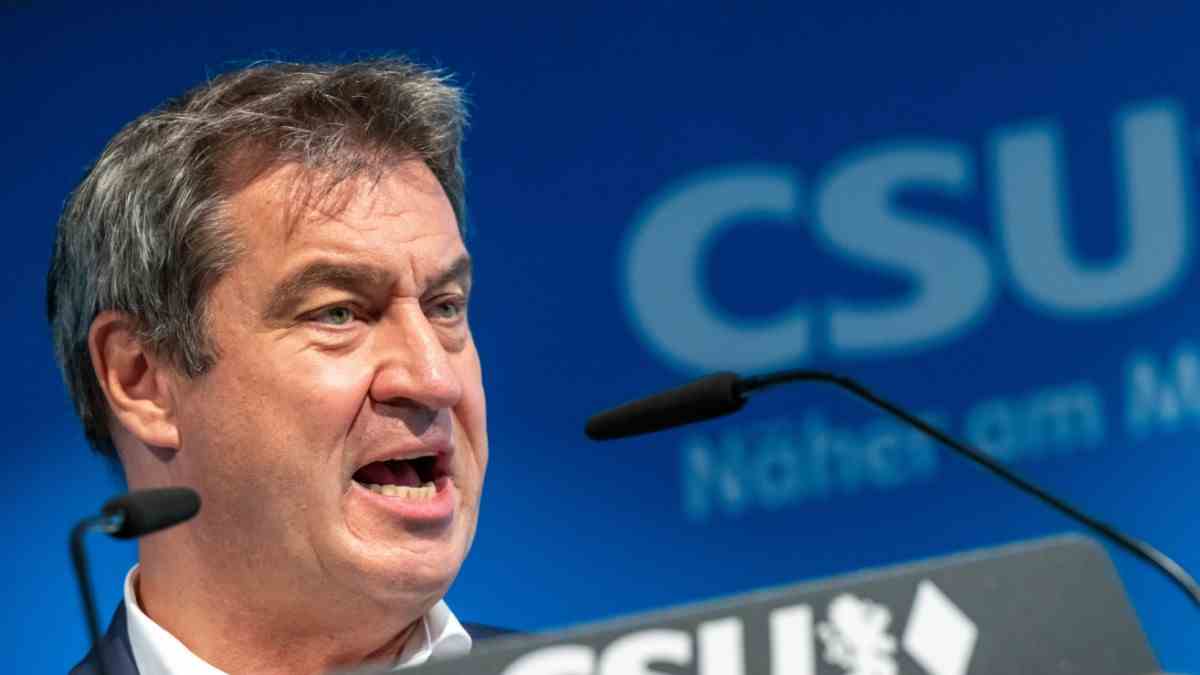Of course, things are different in Bavaria than in the rest of the republic. But what is happening right now is a mystery even to those who understand Bayern. First, there is the matter of the nine-euro ticket, with which the federal government wants to relieve those who also want to relieve the CSU: families, students, pensioners. Nevertheless, Bavaria’s Transport Minister Christian Bernreiter (CSU) rebelled against the ticket. He threatens to blockade the Bundesrat. And then there is, secondly, the speed limit, which the CSU and Free Voters actually reject. Nevertheless, Bavaria’s Environment Minister Thorsten Faithr (FW) recently voted in favor of the speed limit in the Bundesrat. What’s going on please?
First to the nine-euro ticket, CSU boss and Prime Minister Markus Söder added on Monday. Use local and regional public transport for three months, nationwide, from June to August for nine euros each? “Nice idea,” said Söder, but “then everything will be back to normal from September”. “Something more sustainable” is needed. Then perhaps the central sentence: “It costs the Free State a lot.”
It’s about money again between Bavaria and Berlin. Minister Bernreiter put it even more harshly: “If the federal government believes that it can be applauded on the back of the states for a three-month consolation patch and that others should foot the bill, then it has made a huge mistake.” If the federal government “does not fully compensate” for the costs of the nine-euro ticket and increase the regionalization funds, “it will run into a wall in the Bundesrat,” threatened Bernreiter, who – like all CSU ministers – commissioned von Söder is to shoot at the federal government at every opportunity. So is the blockade against the nine-euro ticket a tactical maneuver by the CSU to distinguish itself among its own electorate in the conflict with Berlin?
Bavaria isn’t the only country having trouble with ticket plans
Of course, Bavaria is using its status as the only “traffic light-free” federal state to “speak up harder,” according to state government circles. But, that’s also true: Bavaria is not the only country that is dissatisfied with the ticket plans. Baden-Württemberg’s Green Minister of Transport, Winfried Hermann, is also protesting, and there is resistance even in red-green-red Bremen. The fact that Bremen is a city-state relieves Bavarian Minister Bernreiter of the accusation that he doesn’t care about the nine-euro ticket, since Söder sees him primarily as a representative of rural areas, where the car is the main means of transport.
So it’s not just about the money for Bayern. The protests of the other countries obviously also serve the purpose of keeping their own contribution small – and to put pressure on the federal government in the cost gamble for the nine-euro ticket. The fact that the CSU, of all people, is calling for “a permanent strengthening of local public transport through more federal funds” instead of tickets is more of a Bavarian-specific circumstance. The CSU, which always provided the Federal Minister of Transport from 2009 to 2021, could have enforced a strengthening of local transport.
Either way, Bayern should not primarily aim to prevent the nine-euro ticket. According to surveys, most people are positive about the offer, the role of blocker would not be a popular role. If their protest helps the states get out of the ticket number cheaply, the CSU could make a name for itself as a fighter for the financial interests of the Free State – without being a spoilsport. That Söder promised all Bavarians a 365-euro annual ticket for local transport four years ago, for which the Free State would pay “heavy”? Do not contradict the nine-euro ticket blockade, say party circles. As a result of the pandemic and the war in Ukraine, the financial possibilities are no longer the same as in 2018.
And now for the speed limit. Here the Bavarian behavioral problems in the Bundesrat are easier to explain. “The speed limit was one of more than a dozen sub-points of an overall decision on the effects of the Ukraine war,” said a spokesman for the Ministry of the Environment. Which means that Bayern did not vote for the limit out of conviction, but for the sake of simplicity. This is evidenced by a statement in the minutes of the decision. It states that Bavaria “considers the effect of a general speed limit to be limited” and will “not support it” despite the approval of the Bundesrat. The decision has no real consequences anyway. Only the Bundestag can decide on a speed limit.

